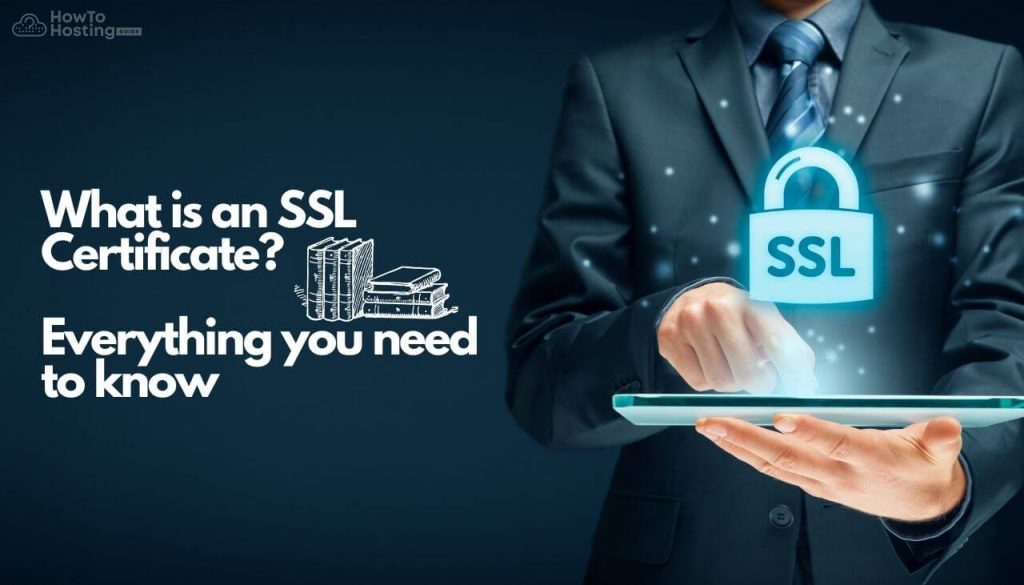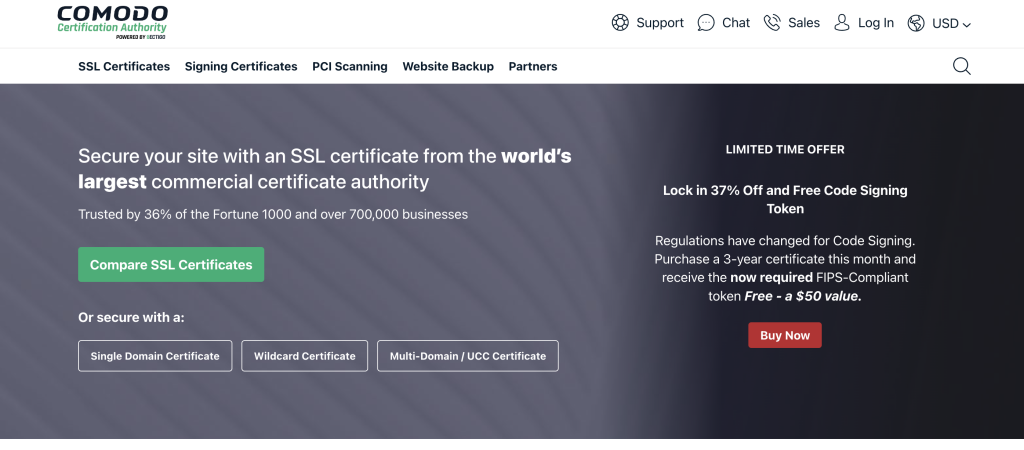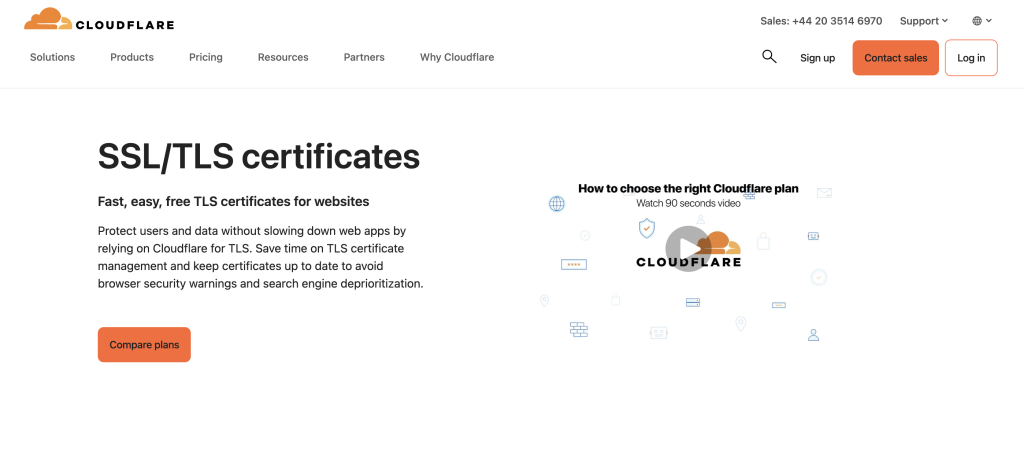On This Page: [hide]
Having an SSL certificate is one of the most important steps, when it comes to building any kind of Internet site.
This certificate serves as a validation and proof that the site is legitimate, providing customers with reassurance that they can continue interacting with it safely.
The implementation of SSL certificates and their issuing can be different depending on your individual case. For in-depth information on why should you have one, how to implement it, and other useful information, continue reading this article.

What Is an SSL certificate?
Today, SSl Certificates are considered essential elements of every website, and their understanding and deployment is very important for webmasters. SSL is actually short for Secure Sockets Layer, a security technology that oversees the creation of a secure connection from a website to the visitor. It is considered very important and is used for several purposes from a webmaster’s standpoint:
- Safety. As the data is encrypted, there is no way that a third-party can hijack the data stream and read the content and interactions of the users.
- Authenticity. Having an active SSL Certificate gives a sense of trust to the visitors and is deemed an important factor by the search engines in their ranking assessment.
- Requirement. Some web applications, certain content management systems, and other services that can be installed on a site require the use of SSL certificates to function properly. This is especially true for e-commerce platforms.
There are various types of SSL certificates available, and two main ways to obtain them. The easiest and most common method is to contact your hosting provider. Many hosting plans today include a free SSL certificate as part of the package, and the process for getting one is straightforward.
Most hosting providers offer simple, step-by-step guides on how to request and install the certificate, making it beginner-friendly.
The second option is to obtain an SSL certificate from a Certificate Authority (CA)—a trusted organization (such as Comodo) that issues certificates to secure websites.

These companies specialize in providing SSL certificates and can offer different options based on your needs. This method is often chosen if your hosting provider does not include a certificate, or if you need more advanced features and customization.
Types of SSL Certificates
SSL certificates come in different categories depending on the number of domain names you need to secure:
- Single-Domain SSL Certificates. These certificates are valid for just one domain name. If you only have one website, this type is usually sufficient.
- Wildcard SSL Certificates. These cover one domain and all its subdomains. For example, if you have multiple subdomains like “blog.example.com” or “store.example.com,” a wildcard SSL will secure all of them under one certificate.
- Multi-Domain SSL Certificates (also called SAN Certificates). These allow you to secure multiple, different domain names with a single certificate. This is ideal for businesses that operate several websites under different domain names or for websites with various language versions or subsidiaries. It helps simplify management by consolidating several certificates into one.
Another distinctive feature of individual certificates is their level of validity, the three different options are the following:
- Domain Validation — This is the cheapest option for most sites. It covers the basic encryption standards and verifies the ownership of the domain names. It is very easy to set this certificate, full deployment can be done in a matter of hours.
- Organization Validation — This authenticates more information, apart from the owner of the domain name. It gives further data about the domain name registration, including the name and address of registration.
- Extended Validation — This type provides the highest degree of security for the site visitors. Its issuing confronts a meticulous background check made by the certificate authority about a detailed set of information. This confronts to strict guidelines, the entity will be checked to verify their legal, physical, and operational standing.
In practice, the SSL certificates are used to confirm and secure the validity of a wide range of sensitive data that is transmitted between the site visitors and the websites. Examples are the following: account credentials, personal user information, financial data, legal documents, client lists, medical records, unique identifiers, and etc.
Why Do Modern Websites Need SSL Certificates?
An SSL certificate is required in order to ensure the security of user data, prove website ownership, stop malicious people from making phony copies of the site, and increase user trust. SSL/TLS encryption can be used because of the public-private key combination enabled by an SSL certificate.
SSL certificates are critical to ensuring that modern websites stay secure. They encrypt the communication between the client and the server, which helps protect data from being accessed by unauthorized users. SSL certificates provide website owners with a way to prove their identity and trustworthiness.
They can be used to gain customer trust when it comes to handling sensitive information, such as banking or credit card details. Without an SSL certificate, customers would be less likely to feel safe providing their personal data to websites with which they are unfamiliar.
How to Choose the Most Suitable SSL Certificate
The type and nature will largely depend on the blog site, the installed applications, their requirements, and the site demographics. For this reason, it would be best to have at least the basic certificate type even when the site is just starting up, just in case a more sophisticated version is required.
Usually, the provided assets by the hosting provider will be suitable for the type of site that is to be created. The web hosting companies typically provide the best possible certificate types according to the plan types — cheap shared hosting providers are given the lowest tier of certificates, while dedicated server customers may be contacted to have the more advanced ones issued.
Practically, everyone can create their own certificate, this distinct option is labeled as the ability to make a self-signed certificate. The main difference is that a digital signature operated by the site owners is used instead of a Certificate Authority (CA). In practice, this means that no outside party has verified the authenticity and authority of the site.
This is the most obvious free way of getting a certificate running on your site, however, it has two distinct drawbacks — some search engines and web browsers may mark such sites as unsafe content. The good news is that there is a way of overcoming this issue by obtaining a free SSL certificate from a trusted party — at this moment there are several sources:
- Cloudflare Free Certificates — The popular CDN network gives out a free SSL certificate to their customers. A significant drawback is a fact the free version is shared between several customers on a single cloud domain.
- Let’s Encrypt — This is a nonprofit Certificate Authority (CA) that provides free certificate for the public benefit. Their site offers a free and easy way to install such an element to given users’ sites.

If the site intends to implement complex content management systems, commerce software, payment solutions, complex databases, and enterprise web applications, there may be specific requirements as to which kind of certificate is required.
This should be listed in the technical documentation. A test should be done before the systems are enabled for public use. Installation shouldn’t be difficult if you follow step-by-step guides.
Where to Buy a SSL Certificate
Buying certificates directly from the CA issuers is possible. The webmasters can reach out to one of them and inquire as to what are the current prices. Usually, these providers will also provide extended support, as they are not affiliated with specific hosting providers.
We highly recommend that you obtain a certificate from your own web hosting company. This is the preferred method as it is often the easiest to use and will lower the cost. Follow the documentation steps from the company which lists how to get started.
Nowadays, most hosting plans come with at least one free certificate that is issued automatically at the point of registration. For example, Godaddy is known to give out certificates at a very competitive price.
Usually, the administrative panels will have a dedicated management section, from there the users can view what is the current status of the ones they have. Many providers also offer to have a quick shortcut to the additional payments page from where extra ones can be purchased for a given fee.
Conclusion
Whatever the type of website that is to be hosted the availability of a certificate proves to be one of the most important steps. If it is implemented early in the development, this can provide the required early boost in search engine ranking.
Furthermore, if the site owners are considering the use of complicated dynamic elements, web applications, or content management systems, the use of certificates will probably be a requirement before they can function properly.
We recommend that you view your hosting plan terms and see if you already have a delegated SSL certificate available.
